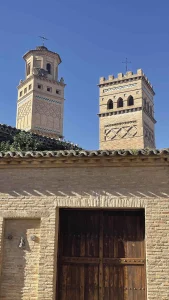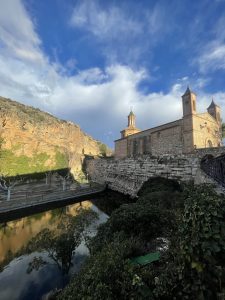
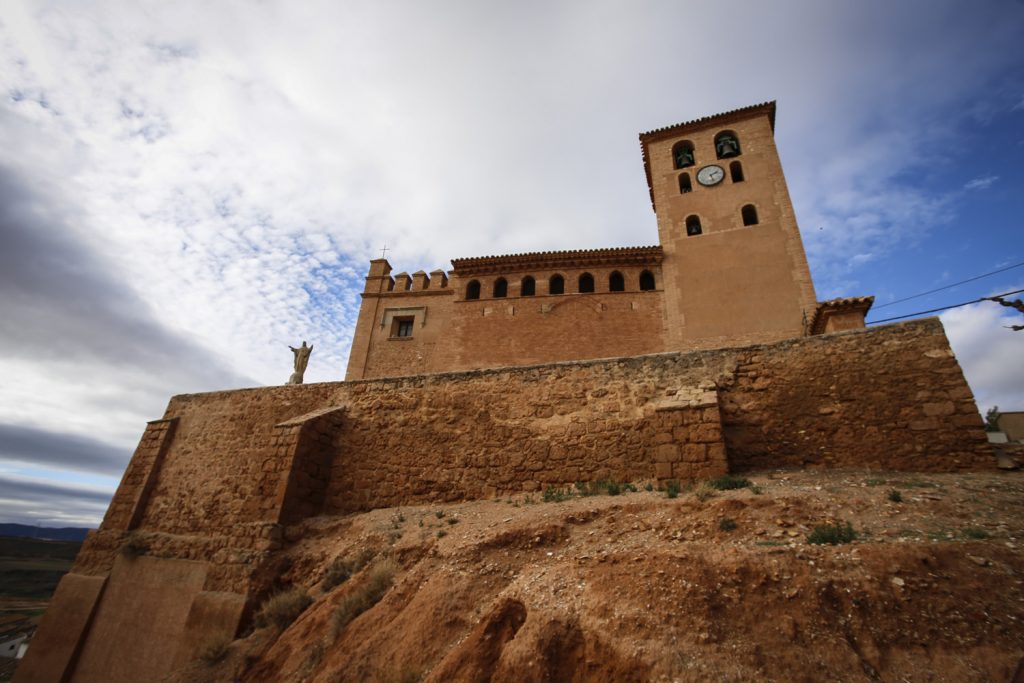
Monuments
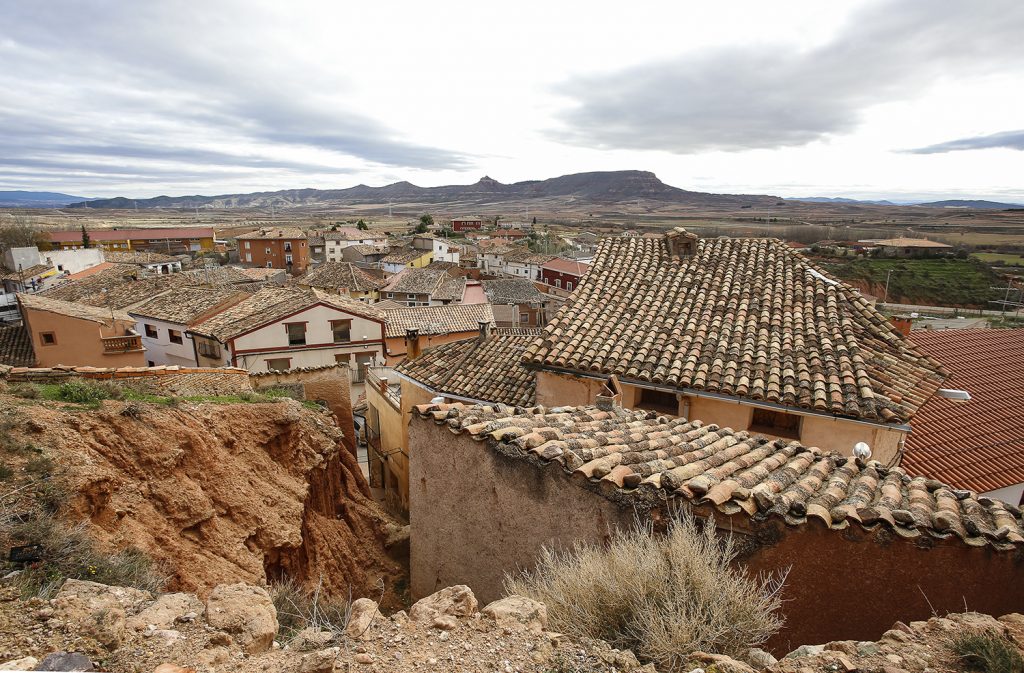

Mudetrad Project
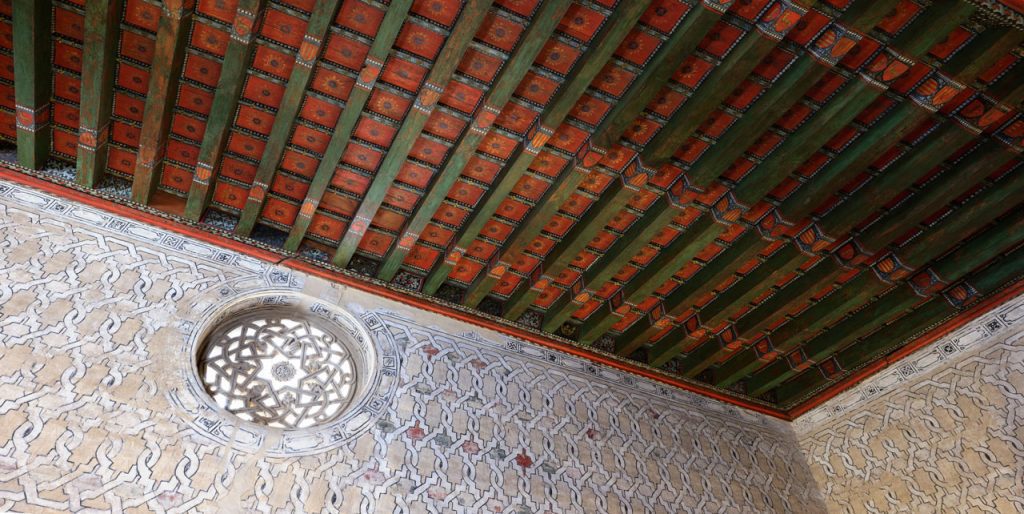
Mudejar wood in Cervera de la Cañada
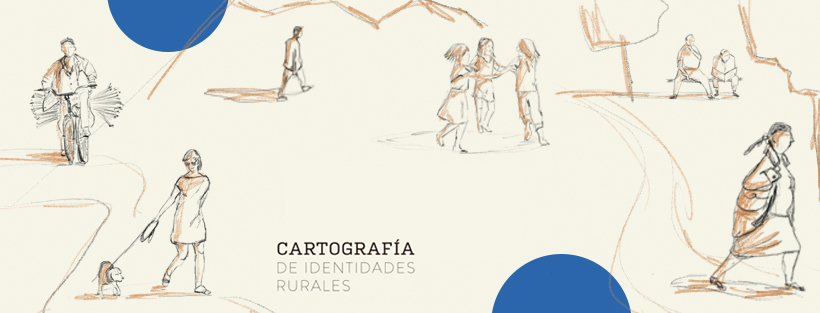
Cartography of Rural Identities
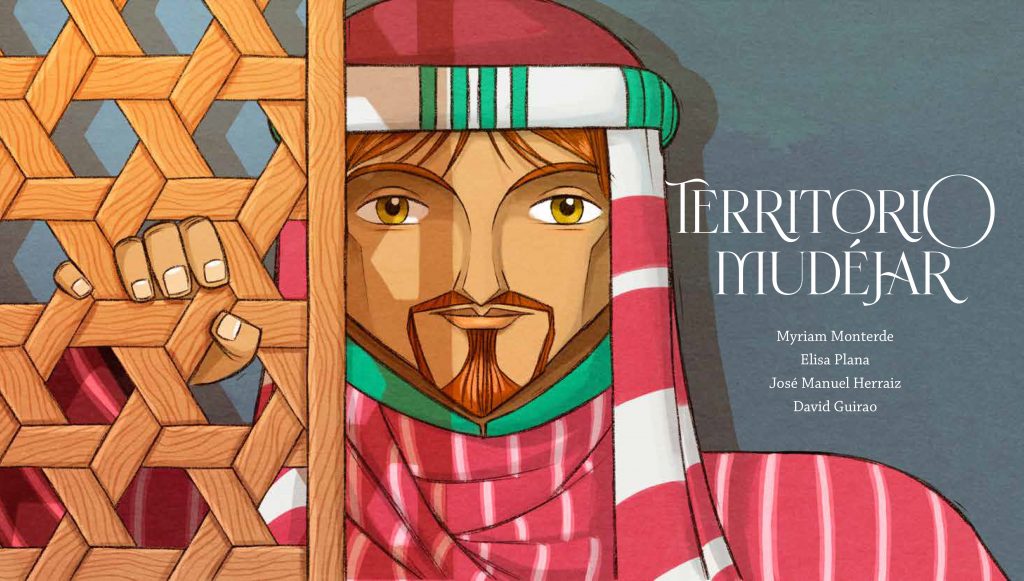
Didactic Mudejar, the guide

Circular from the rural school
Family walks

El mudéjar y la geometría euclidiana

The versatility of the concept:
the Mudejar Space
On the ruins of an ancient castle, in the highest part of the hamlet and in an exceptional viewpoint between the Sierra de Armantes and the Ribota valley, we find one of the emblems of Aragonese Mudejar architecture: the church of Santa Tecla or Nuestra Señora de la Asunción, declared a UNESCO World Heritage Site in 2001 for its unique style, its magnificent conservation and its incomparable beauty.
This single-nave fortress church is one of the most significant works, and the one that has survived to the present day with the greatest integrity, by one of the two most representative Mudejar masters of the Aragonese Middle Ages: Muhammad Rami. Known as the master builder of the great Aragonese patron Pedro Martínez de Luna, Pope Benedict XIII, the “Papa Luna”, his presence is constant throughout the Luna lordship from the end of the 14th century and throughout the first half of the 15th century.
He finished the church in 1426 and left his signature on the choir parapet with the inscription: “Obrada et deficada por: Muhammad Rami: with God”.
On the ruins of an ancient castle, in the highest part of the hamlet and in an exceptional viewpoint between the Sierra de Armantes and the Ribota valley, we find one of the emblems of Aragonese Mudejar architecture: the church of Santa Tecla or Nuestra Señora de la Asunción, declared a UNESCO World Heritage Site in 2001 for its unique style, its magnificent conservation and its incomparable beauty.
This single-nave fortress church is one of the most significant works, and the one that has survived to the present day with the greatest integrity, by one of the two most representative Mudejar masters of the Aragonese Middle Ages: Muhammad Rami. Known as the master builder of the great Aragonese patron Pedro Martínez de Luna, Pope Benedict XIII, the “Papa Luna”, his presence is constant throughout the Luna lordship from the end of the 14th century and throughout the first half of the 15th century.
He finished the church in 1426 and left his signature on the choir parapet with the inscription: “Obrada et deficada por: Muhammad Rami: with God”.
The decline of Mohammed Rami
UNESCO World Heritage 2001
Santa Tecla is a simple church with a five-sided polygonal chevet that does not coincide with the axis of the central nave but is aligned with the cylindrical tower of the castle. The sobriety of the exterior contrasts with the spectacular interior decoration, typical of the original Mudejar churches, which has been preserved in all its splendour. The walls are surprising, simulating ashlar masonry with brick-like pictorial decoration, the ribbed vaults decorated with black dragons, the large late Gothic floral rosettes and the heraldic motifs such as the coats of arms of Aragon and Cervera de la Cañada.
In this temple we also find examples of the local carpentry school that was located in the area of Calatayud in the first decade of the 15th century. This is a polychrome wooden alfarje (ceiling) that supports the choir. Just below this choir is another of the church’s singularities: its gilded oculus with a seven-pointed Mudejar ribbon, unique in the Hispanic Mudejar style.
Santa Tecla is a simple church with a five-sided polygonal chevet that does not coincide with the axis of the central nave but is aligned with the cylindrical tower of the castle. The sobriety of the exterior contrasts with the spectacular interior decoration, typical of the original Mudejar churches, which has been preserved in all its splendour. The walls are surprising, simulating ashlar masonry with brick-like pictorial decoration, the ribbed vaults decorated with black dragons, the large late Gothic floral rosettes and the heraldic motifs such as the coats of arms of Aragon and Cervera de la Cañada.
In this temple we also find examples of the local carpentry school that was located in the area of Calatayud in the first decade of the 15th century. This is a polychrome wooden alfarje (ceiling) that supports the choir. Just below this choir is another of the church’s singularities: its gilded oculus with a seven-pointed Mudejar ribbon, unique in the Hispanic Mudejar style.
Information
Town Hall: 976 899 222
http://www.dpz.es/municipio/municipios/cervera-de-la-canada
Association for the Integral Development of the Region of Calatayud and Aranda
galcar.es
VISIT TO CERVERA DE LA CAÑADA
976 633 296
DO YOU WANT TO KNOW MORE?
Aragon Tourism
turismodearagon.com
Tourism Calatayud Region
comarcadecalatayud.com
Centre for Bilbilitan Studies
cebilbilitanos.com
Territorio Mudéjar Network
The city council has been a founding member of Territorio Mudéjar since 13 September 2018.
He is a member of the board of directors of the entity as Secretary.
Projects Territorio Mudéjar in Cervera de la Cañada
Monuments | View the project
Pedagogy | View the project
Mudetrad Project | View the project
Mudejar wood | View the project
Identidades Rurales | View the project
Mudejar civil architecture | View the project
Mudejar and Euclidean Geometry | View the project
Didactic Mudejar, the guide | View the project
Preventive town planning | View the project
‘Circular’ Family walks | View the project
Mudéjar RGB | View the project
Mudejar landscape | View the project
Mudéjar Smart 3D | View the project
Sound contexts and Mudejar architecture | View the project









